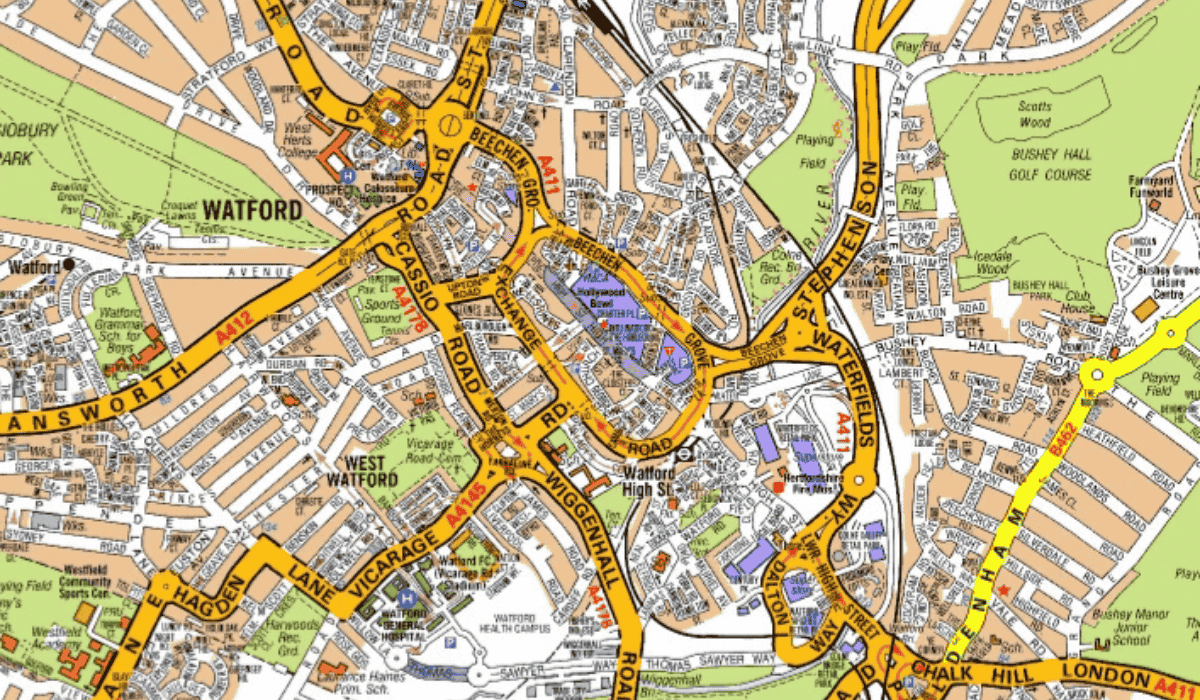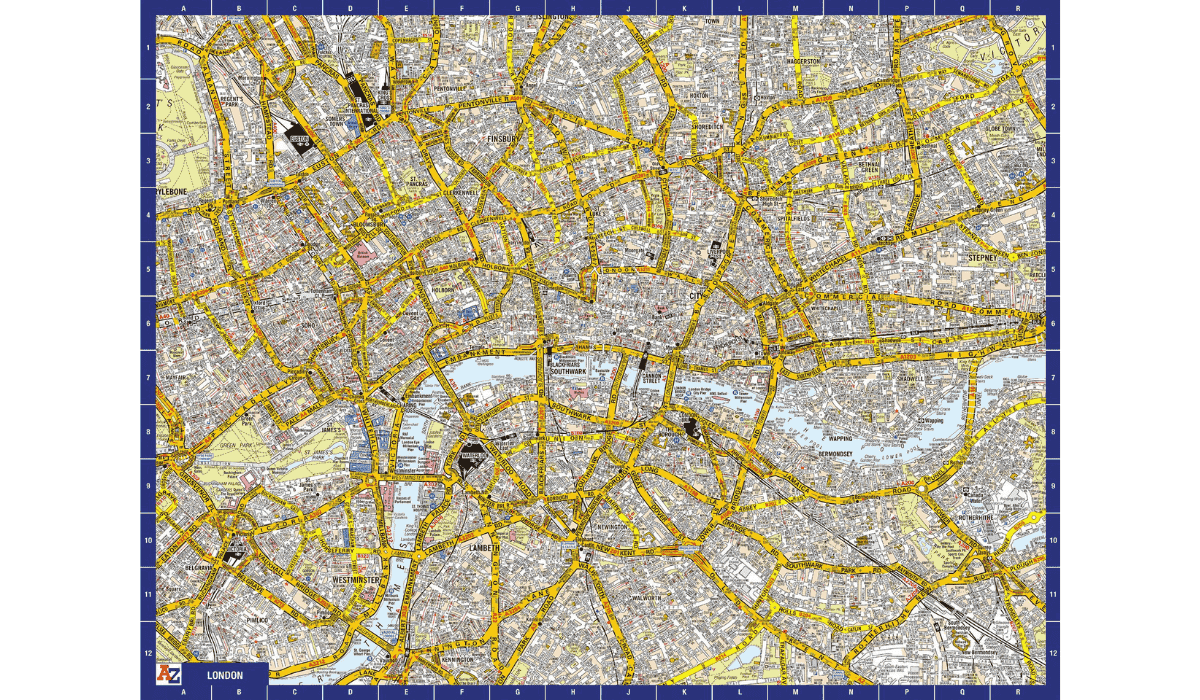The Topographical Skills Test is part of Transport for London’s (TfL) licensing process. It assesses your ability to read maps, plot routes, and identify key locations, all essential skills for any private hire driver navigating London’s streets.
You’ll take the test on paper or a tablet at an approved TfL assessment centre, under timed conditions. It’s designed to make sure you can carry out your job without over-relying on GPS, especially in areas with poor signal or during emergencies.

Who Needs to Take the Test?
If you're applying for your first PCO licence, and you don’t already hold a taxi driver licence or a relevant exemption (like certain London taxi qualifications), you’ll need to take this test.
This includes drivers planning to work with Uber, Bolt, Ola, FREENOW, or any other TfL-licensed private hire operator.
Unfortunately, there’s no skipping it, it’s a mandatory step, so if you’re not great at taking tests, we’d recommend you prepare a little extra hard.
However, you could qualify for certain exemptions, such as if you are a licensed London taxi driver, a professional London tourist guide (like a Blue Badge Driver Guide), or hold a valid DVLA Group 2 licence (which indicates you meet high medical standards). If you fit in this category or have another reason to believe you might be granted exemptions, you should call TfL to confirm at 0343 222 5555.

What’s Included in the Test?
The TfL Topographical Skills Test has four main sections:
1. Map Reading
You’ll be given an A-Z map of London and asked to locate places like hospitals, landmarks, and Underground stations. You'll need to understand grid referencing systems and symbols.

2. Route Planning
This section checks your ability to plot and describe the shortest route between two points. You'll have to highlight roads and directions using the map provided.

3. General Geographical Knowledge
Here, you’ll be asked questions about boroughs, zones, airports, and major roads in London and its surrounding areas. This helps test your local knowledge.

4. Compass Directions
Expect to see questions like: "What direction is Victoria Station from London Bridge?" These assess your understanding of basic navigation.
The test lasts around 60 minutes, and a pass mark (60%) is required in each section.

How to Book the Test
You can only take the Topographical Skills Test at a TfL-approved assessment centre. Once your private hire application is underway, you’ll be instructed by TfL on when and how to book.
To book your TfL appointment, you’ll need a few key things: your TfL application reference number (can be found on your previous emails from TfL regarding your PCO application), a valid photo ID, and a booking fee, which typically ranges from £36 to £50, depending on the test centre. Make sure to have these ready when scheduling, as missing information can delay your booking.
Find approved test centres listed on the TfL website.

What to Bring on the Day
The big day has arrived… but before you stroll into your TfL appointment thinking good vibes and confidence are enough, double-check your essentials. First up, you’ll need a valid passport or UK driving licence (yes, the actual document, not a grainy photo of it on your phone). Also, don’t forget your TfL application reference number. You know, that magical string of characters that proves you're not just a very enthusiastic walk-in.
It’s also a good idea to bring along any confirmation email or appointment letter from the test centre. You probably won’t need it, but if something’s gone wonky with the system, it’s your backup.
And just a small tip, arrive 15–20 minutes early. This gives you a buffer for ID checks, finding the right room, or just calming your nerves with a deep breath and a slightly-too-expensive coffee. Trust us, no one wants to be the person sprinting in at the last second, holding their belt in one hand and a half-eaten Greggs in the other. Plan ahead, chill, and you’re already off to a good start.

How to Prepare for the Topographical Skills Test
1. Practice with a London A–Z Map
Before you even think about acing your topographical test, get cosy with the good old London A–Z map. The actual printed one. While apps are great for everyday driving, the test requires you to work with physical maps, so the sooner you start flipping pages like a London uber-driver-in-training, the better.
Focus on learning the layout of the city, especially the differences between Central, North, South, East, and West London. Pay extra attention to major routes like the M25, M1, A40, A406, and A13, as well as key landmarks including airports, hospitals, and major tourist spots. Knowing how these connect can save you time when you're under pressure in the exam room.
The more you practice with the printed map, the quicker you’ll get at spotting routes, understanding directions, and thinking spatially, all essential skills for passing the test and navigating the real world like a pro.

2. Use Online Mock Tests
Websites like tflseru.co.uk offer mock topographical tests that simulate real conditions. Practise under time pressure to improve accuracy and speed.

3. Know Your Boroughs and Zones
You don’t need to memorise every postcode, but you should know London boroughs (like Lambeth, Camden, Tower Hamlets), where they sit on the map, and what major areas they contain.

Tips to Pass First Time
Passing the topographical test on your first try isn’t about luck, it’s about preparation. One of the biggest pitfalls is poor time management. If you get stuck on a tough question, don’t dwell on it, make your best guess and move on. There’s no negative marking, so blank answers hurt more than wrong ones.
Also, ditch Google Maps and app-based shortcuts during practice. The test uses printed maps, so get comfortable flipping pages, reading grid references, and navigating old-school style. If English isn’t your first language, take some extra time to practice reading map-based instructions in English… they can be trickier than they seem under pressure… even more fluent English speakers.
If you’re feeling unsure, consider signing up for a prep course. Many test centres offer them, and they’re often packed with insider tips and mock exam practice. With over 30% of first-time candidates failing, usually due to lack of prep, a few focused study sessions can make all the difference. A little effort now means you’ll only have to sit through it once… hopefully.

What Happens If You Fail?
Don’t panic, failing the topographical test isn’t the end of the road, but it does mean hitting pause on your application for a bit. If you don’t pass, you’ll need to wait for TfL to re-authorise you before you can book a retake. Once you get the green light, it’s back to the booking site, with another test fee. Yeah, you have to pay it again.
The good news? You can retake the test as many times as needed. The not-so-good news? Repeated failures can cause serious delays to your PCO licence application. To avoid dragging out the process, aim to pass on your first or second attempt. A bit of solid prep up front can save you weeks (or even months) of frustration later.

Conclusion
The TfL Topographical Skills Test may sound intimidating, but with the right preparation, it’s entirely manageable. Think of it as a professional skill, not just a requirement. Being able to navigate confidently without GPS will make you a better, more trusted driver in one of the world’s busiest cities.
Ready to start your PCO application journey? Check out our other guides on insurance, car finance, and PCO car recommendations to build your career as a London private hire driver.








.svg)



.png)

.png)
.png)






